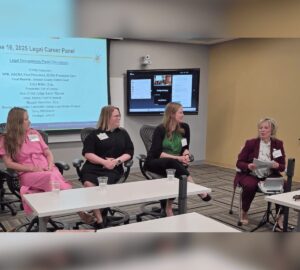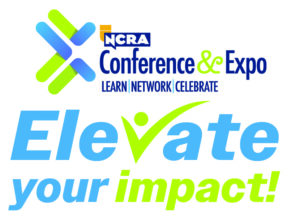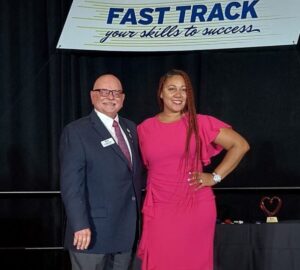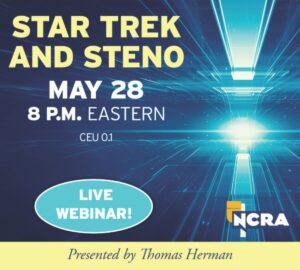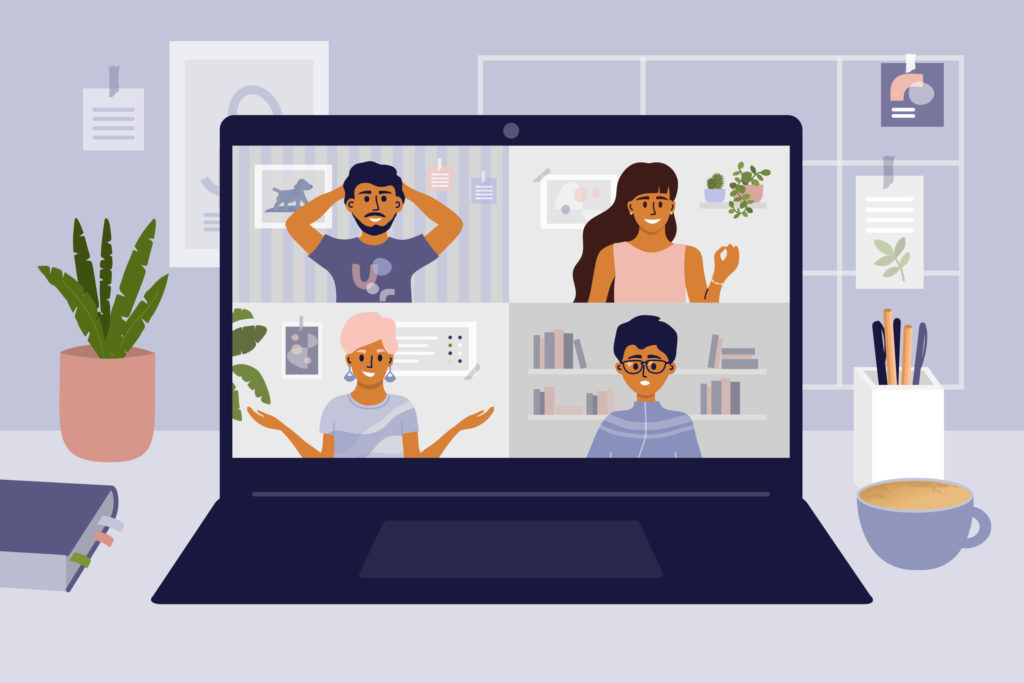
Meeting and connecting virtually has skyrocketed during the COVID-19 pandemic. The JCR Weekly checked in with a few NCRA members to see how that is affecting them personally and professionally.
We asked these members to share their current situation:
Ricky Tyler, an official reporter in Wetumpka, Ala.
Ksenija Zeltkalns, RPR, a freelancer in Topeka, Kan.
Lin Riffle, RDR, CRR, CRC, a freelancer in Columbus, Ohio
Yvette Heinze, RPR, is an official in Helena, Mont.
JCR | Did you connect to friends and family virtually before? If so, what platforms did you use?
KZ | I didn’t connect to friends and family virtually before.
RT | I have used Skype in the past, but mainly just FaceTime with our daughters at college.
LR | Rarely. We would occasionally do a FaceTime or Skype happy hour with a group of friends/family.
YH | Probably like many other reporters, I would get consumed with work and would put off keeping in touch with family and friends. It was always, “Once I get caught up, we’ll get together.” And when I did connect with them, it was usually via phone calls and email.
JCR | How has that changed over the last couple months?
KZ | My group of friends has been connecting with weekly Zoom calls. There are seven of us. Two are still going into their physical job locations, one is working regular hours but remotely through Zoom or Webex, and the rest of us already worked from home at least half the time with some outside interaction.
LR | Now, since I can’t visit in person, I am doing more video calls with family members via Facebook, Skype, and Zoom.
YH | Since all of this happened, I’ve reconnected with friends I haven’t talked to in years, along with aunts, uncles, and cousins. We all started checking up on each other. New platforms I’ve been using include WhatsApp, Facebook, and Houseparty. In fact, for my birthday a couple friends and I connected on Houseparty and enjoyed a nice conversation with drinks.
JCR | What about professionally?
RT | I am an official reporter in the state of Alabama, and we have been using Zoom for the last four or five weeks. The court system set it up for the judges to use, and we have been having some minor hearings every week — some criminal, some civil, and some domestic. It seems to work pretty well depending on the internet connection.
KZ | I’m an employee of a court reporting firm that covers work in Kansas and Missouri. The firm has had video conferencing capabilities since 2001. Over the years several platforms have been utilized, but right now they’re using BlueJeans. Before COVID-19, I took maybe one or two relatively short depositions by video conference. For the past six weeks, they’ve all been by video conference.
In the past, attorneys from outside the state were using video conferencing for depositions they didn’t expect to go more than a couple hours in order to save on travel expenses. Now local attorneys are having to get comfortable with remote depositions. Most of the depositions I’ve taken during this shutdown have been expert witnesses like doctors or other experts whose schedules fill up; so attorneys have gone ahead and taken their depos in order to keep their cases on schedule as much as possible.
LR | It is taking a while for clients to catch on to remote reporting. I think we all prefer an in-person deposition, and I wonder if they are simply waiting with the thought that business will soon resume as usual. I have used Zoom for depositions and GoToWebinar for a remote hearing. For those who have decided to embrace the technology, they are taking the time to learn features such as screen sharing and are “behaving” when it comes to speaking one at a time. It has also been nice to have training sessions and virtual happy hours with colleagues in other parts of the country.
YH | Professionally, a lot has changed. I am a federal court reporter, and I’ve been working remotely since the last week of March. In mid-March, my judge asked me if there was a way I could work remotely. He basically said, “If you can do it, do it.” One of the first things I did was get in touch with our IT staff. They had already been testing and researching different platforms for attorneys and defendants to work remotely. I asked if I could be included, and we immediately started testing and figuring out the process. I next contacted a reporter I met at a convention whom I knew had already been working remotely. (One of the benefits of networking at conventions. You never know who you will meet that will help you out later or whom you may be able to help out.) It turns out that she was using Cisco Jabber, which was the same platform our IT was currently testing. She gave me lots of good info. After that, information flooded Facebook, NCRA had a free seminar about remote reporting, and many reporters were sharing information on different court reporting sites. I kept things simple. I used computers and equipment I already had. The only thing I spent money on was an upgrade of my CaseViewNet so that I could provide realtime via the Cloud, and I bought better speakers for my computer, which I really didn’t need. So far, it’s been working well.
At first, I started remote reporting in magistrate court, where their normal practice is to use a recording system. I started with initial appearances and revocations. Then I started taking longer hearings like detention hearings. After each session, we’d discuss what went well and what could be better. There are only three federal reporters in all of Montana, and I’m fortunate that the other two are amazing reporters. They gave me ideas — and support — and we worked together to figure out rules and procedures, along with IT. I then moved on to motion hearings, changes of pleas, and sentencings. By mid-April, my judge was feeling pretty confident, and we had a few civil hearings with multiple attorneys wanting to appear. One had four attorneys appearing via video, and that went pretty well. Another one had seven attorneys all appearing via phone, and that sucked. But we did it. Then we had one where 14 attorneys made an appearance, and seven attorneys wanted to speak. Our goal was to have all attorneys speaking appear via video, but Cisco Jabber could not handle that. Instead, we used CMS. We tested it, and it seemed fine. However, the hearing was more than three hours long, and all the video links really put a strain on the bandwidth. Two attorneys did not have very good internet connections, and they ended up having to disconnect and call in. In addition to the 14 attorneys making an appearance, another 147 people from the public connected. Our IT set up an AT&T conference connection, and the public was able to hear the proceeding while at the same time we were able to mute all of them. In addition to all of that, I had a fellow reporter Real Team with me which was great because they wanted an expedited transcript.
Since then, we have obtained a Zoom gov license. We’ve been testing that in different ways. We’ve done a few hearings where no one was present in the courtroom. So it’s nice to know we can do it if necessary. We’ve even had a few hearings with an interpreter. I think the only thing we haven’t attempted are trials. They’ve all been postponed at the moment. The more hearings we have, the more comfortable people are getting with the new normal. Even the attorneys are learning to wait their turn. I love that they cannot jump in and talk over another attorney because no one can hear them, and now they all can hear/see that. It also takes them a split second to unmute their microphones, so that’s really helpful too. All of a sudden, making a record is in everyone’s face. We’re not invisible anymore. Everyone has to wait their turn and speak as clear as they can. I am very fortunate to have a judge who has been flexible and patient with this whole process. Before each hearing, he reminds everyone I am present and making a record, and he reads a list of rules for everyone to follow. I also have support from my fellow reporters, IT, and admin. I believe that has made all the difference.
JCR | Whenever things get back to normal, do you think you will continue to connect virtually, personally or professionally?
RT | I am sure that we will probably use it even after the courts open back up for in-person live hearings. My judge likes technology, and he thinks it is great because we cover three counties and we can do hearings in all three counties and never leave the house. Some of the parties have objected to the virtual hearings, but most go along with it. As far as personally, I can see where Zoom might be useful in the future.
KZ | On a personal level I know my friends and I will be connecting in person. Professionally I think it will be a mix of in-person and remote depositions when things get back to whatever the new normal is. I am hoping some witnesses that had usually testified in person will continue to be remote, like the doctors who testify in Kansas workers’ compensation cases. I am not missing the road time.
This shutdown has forced attorneys to use some technology that’s new to them, and that’s a plus. It can be hard to get them to use something that’s new, but I feel like the firm I work for was ready for something like this. There are positives and negatives to video depositions. On the plus side, everyone is even more well-behaved than usual since there is an audio delay on a video conference. On the negative side, if a participant doesn’t have a great internet connection, that can cause some connection issues, and they’re left with a negative impression of the video conferencing platform.
LR | In the future, I think there will be more remote reporting opportunities simply because of the convenience, time savings, and economics. Personally, I am now more comfortable with video chatting with family and friends and believe I will use these platforms regularly in the future.
YH | As far as professionally, I do think I will continue connecting virtually, especially if I need to fill in for another reporter. I’m really hoping attorneys will get used to this. In a state like Montana, where we have to travel a lot for depositions and the roads are often bad, this could be a game changer. It could save time and money for all parties, plus help with the reporter shortage.
Personally, I probably will continue to use different platforms to keep in touch. This whole pandemic does make you stop and remember what’s important in life. And if these platforms make it easier to keep in touch with those we love, I’m sure I’ll keep using them.




